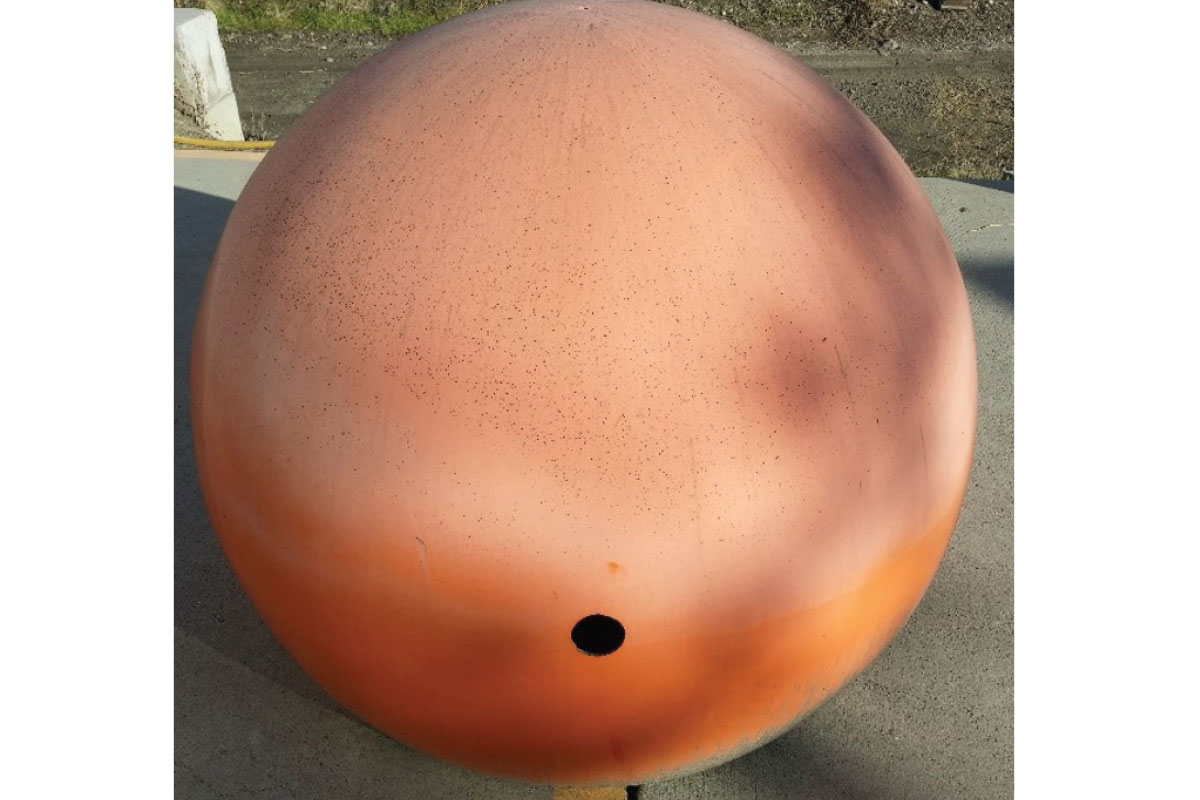Crystal Clear
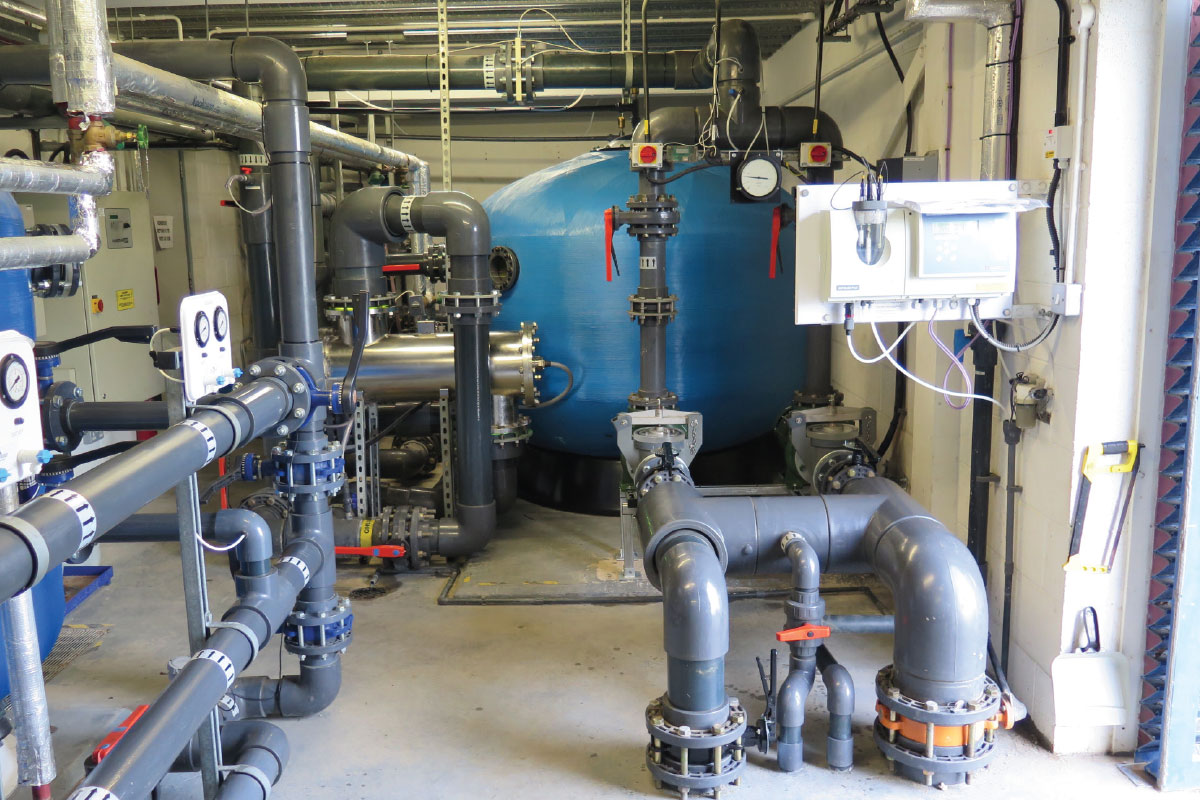
Pool pros and manufacturers alike attest to the benefits and challenges posed by different filters and filter media, but how do they choose which ones to use and recommend?
Benefits like low cost, less maintenance and water clarity are at the forefront of the conversation, but Frank Swindell, senior product manager over filters and valves at Pentair, says filters and media all have their pros and cons.
There may not be any one filter media that ticks all the boxes, Swindell explains, but the decision lies in what works best for a pool owner. “There are different ways of defining ‘most effective’ for filters,” he says. “In most cases, regardless of the filter media, the pool water will look clear. Most backyard swimmers won’t be able to tell if the pool has a sand, diatomaceous earth (DE) or cartridge filter.”
If a pool owner is looking for minimal water loss and less overall maintenance, Swindell suggests cartridge filters as the most effective media due to lack of backwashing and faster filter cleanings. However, if a pool owner wants the cleanest and clearest water possible, he believes the DE filter media is more effective. “They all have one goal: keeping a pool owner’s pool clear of dirt and debris to maintain clear and sparkling water,” Swindell says.
Rob Stiles, director of product marketing for core equipment at Fluidra North America, also believes choosing a filter media comes down to pool owner preference. “Pools are a bit like snowflakes in that each is unique and need to be treated as such,” he says. “Understanding a pool owner’s expectations is critical as certain factors may need to be considered and equipment operated differently for specific outcomes.”
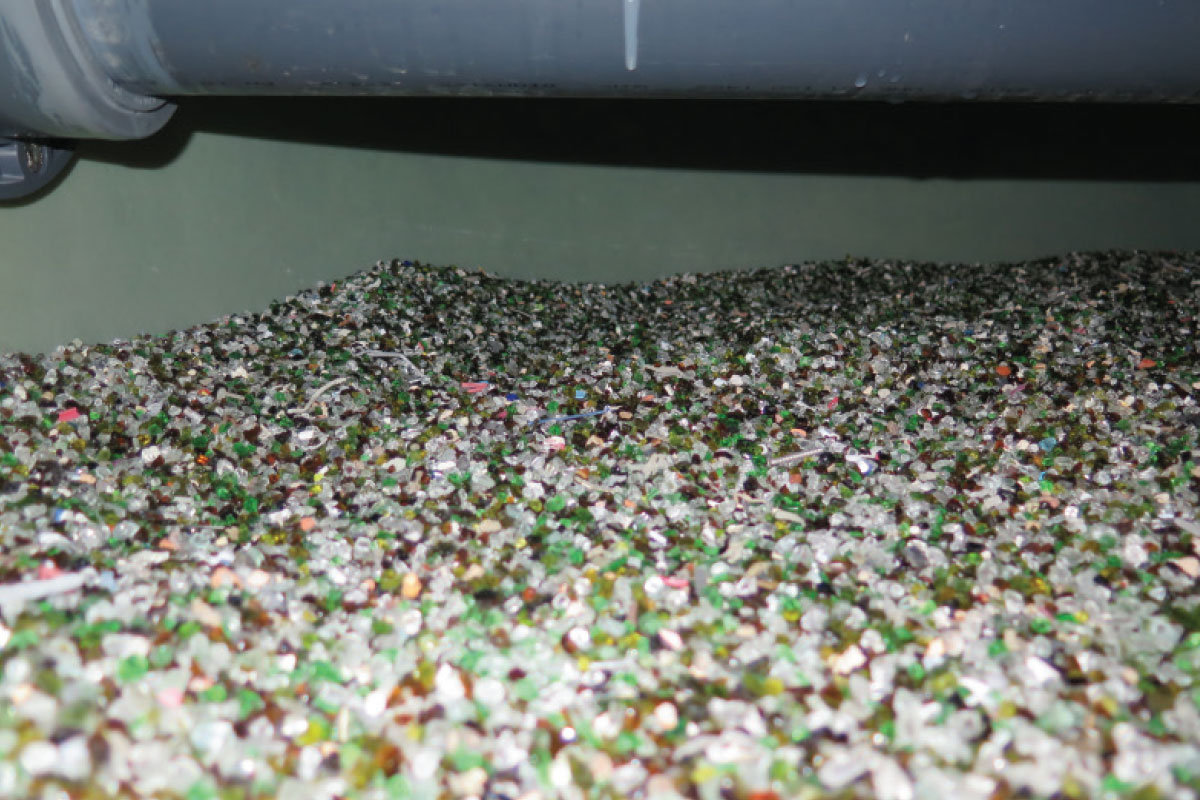

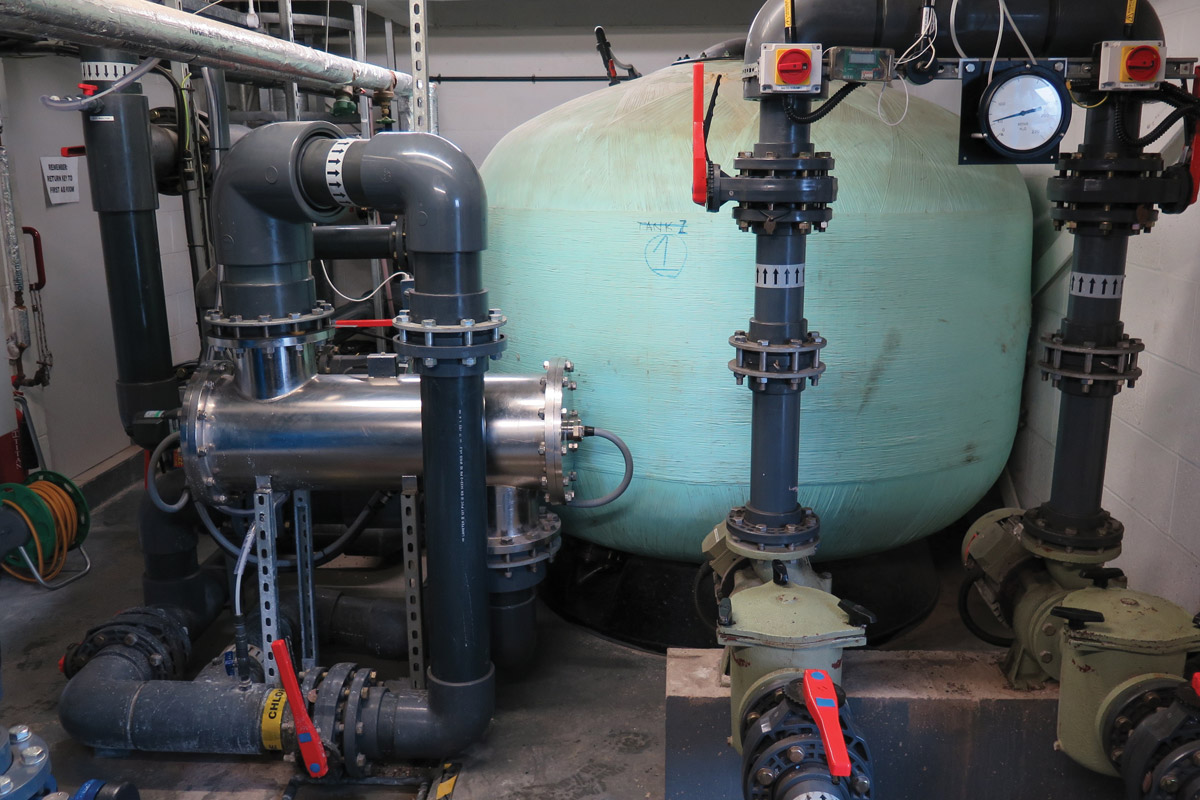
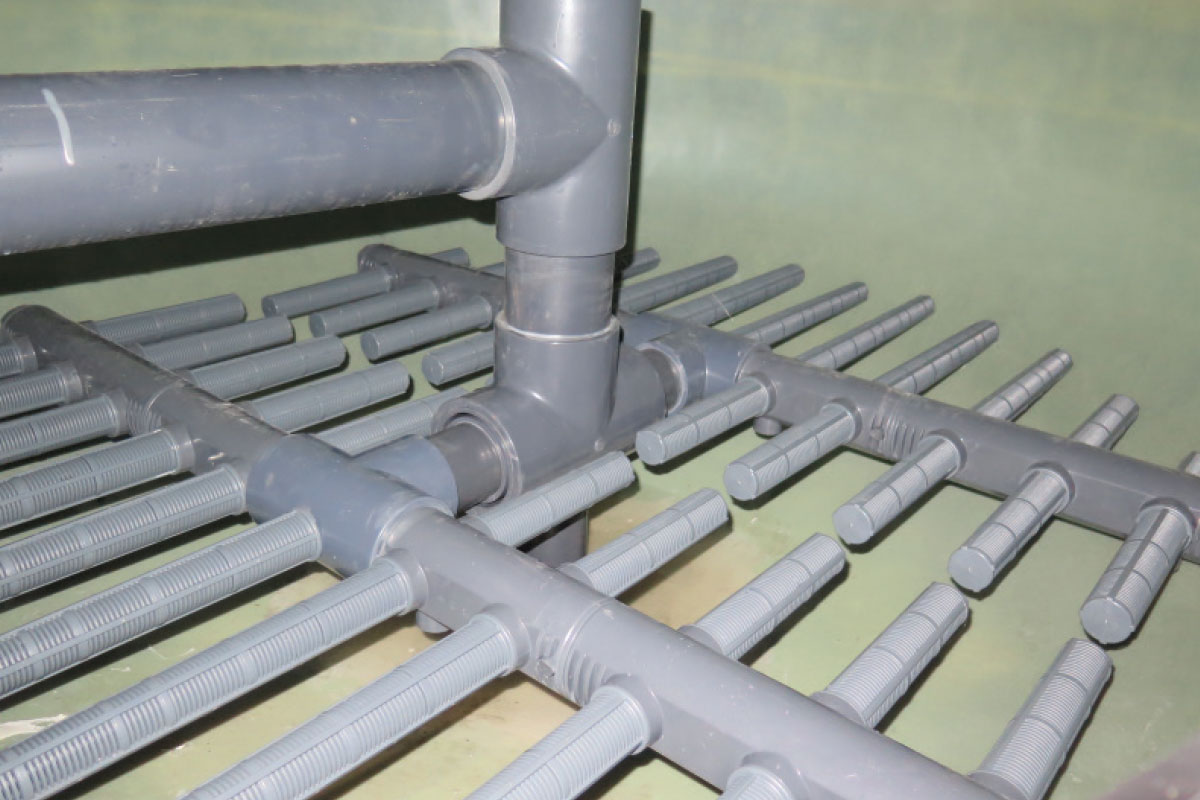
Stiles says factors like pool color, type of lighting and the surrounding environment like trees, grass or loose dirt near the pool should be taken into consideration when choosing the right media and how it is maintained over time. “These factors all play into the overall clarity of the water,” he says.
Brent Miller, sales administrator for Automated Aquatics Canada Ltd., in Edmonton, Alberta, Canada, says when deciding on filter media, it’s important to have a purpose.
“Initial cost, operational cost differences and performance are the primary considerations in my experience,” Miller says. “In terms of performance, the micron claims in the pool industry are quite short-sighted and subject to questionable variable manipulation.”
Miller says filter manufacturers are usually specific about the media type and grades to use, and while he agrees filter media selection is important when it comes to performance, he believes industry professionals should weigh the claims and benefits before adopting any marketing that may only be based on upsell potential. “At the end of the day, all filter media serves as a particle-collection mechanism for suspended material in pool water,” Miller says.
Miller says he believes the true performance measures of filtration are related to chlorine use and air quality. “I am heavily involved with indoor air quality testing, and have been influenced by healthier practices from the United Kingdom and Europe where there is an emphasis on better filtration and reducing the oxidative load on chlorine,” Miller says. “I judge the overall performance of a pool in terms of how clear the water is, along with an oxidative potential measurement and the level of free chlorine.”
Miller says having pool water look clear from the deck is a superficial evaluation of filter performance, and that the best performers are successful because of a strong foundation in good filtration.
But what makes for a strong foundation when it comes to filtering? Sand filters and sand media have been the go-to for decades, pool pros say — but with alternative media such as glass and zeolite becoming more well-known, how easy is it for pool owners looking for a different media to switch?
Based on the company’s testing, Pentair doesn’t generally recommend one substance over the other, as different options work for different pools and pool owners. He says recommendations are based on what a customer wants. For example, he adds, a pool owner may want to go the sand route with a sand filter because it’s the most cost effective, it’s a simple process to clean and a sand filter could last the duration of a pool’s lifetime if properly maintained.
However, Swindell says, sand probably has the lowest clarity level. For a customer looking for cleanest and clearest water, he recommends DE media because while sand can get the job done, DE media can trap smaller particles. The downside? DE requires more frequent maintenance, about once a month, he says.
Another option Swindell highlights is cartridge media, stating it’s currently Pentair’s most popular pool filter. “The nonwoven, pleated material allows for higher square footage within the filter housing, giving pool owners more time in between filter cleans,” he says. While the filtering rate is not as effective as DE media, cleaning cartridge media is easiest of the three, often going an entire season before needing maintenance. “Pool owners can simply hose the cartridge down and turn it back on again with no backwashing or loss of chemically treated water,” he explains.
Swindell also recommends that if pool owners choose to use a different media, they should ensure that the product they choose is listed by their manufacturers with a regulatory agency like NSF or UL.
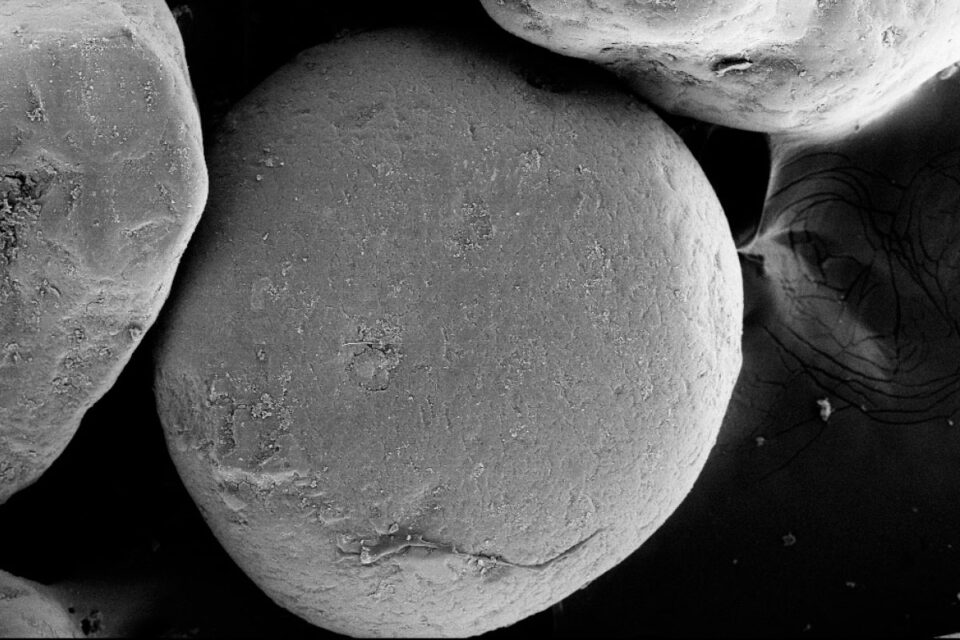
Brent Miller of Automated Aquatics is a fan of ceramic filter media. “Ceramic media is spherical and extremely textured, and may have the edge for unassisted particle retention,” Miller says. “The other interesting fact with ceramic media is that the material does not erode or smooth out over time like we see with silica sand.” These images show magnified ceramic media from Wateropolis Corp.
Dean Shelfer, director for Triwater, a swimming pool service company in the United Kingdom, says silica sand has been tried and tested, with most companies knowing how to work with the media and its grades. However, he adds that glass media is being widely accepted and used within the UK swimming industry: “It has proven itself to be more than an equal to its rival, silica sand.”
Less clumping, less volume required and less maintenance overall are just a few benefits of glass media Triwater has noted when pool owners switch. Shelfer says knowing your filtration and backwash flow rates is imperative to a healthy filter bed — and subsequently, a healthy pool.
“Longevity of glass is outlasting silica media,” Shelfer says, adding that he’s also never found glass media to calcify like silica sand. Regarding the extruded plastic open-cell media, Shelfer says he’s only ever taken it out of filters. “It has underperformed and caused issues in water clarity and, in my opinion, water safety,” he adds. “It should be left to Koi ponds.”
Stiles says some alternative forms of filtration media have been found to decrease the gaps found with sand media, therefore showing more effective at removing smaller particles earlier in the filtration cycle.
“However, with the alternatives, ancillary issues may affect other pieces of equipment.” Stiles adds, warning that escaping debris is possible if the media size doesn’t fit the filter well. “They are all good choices,” he says. “It simply depends on the wants and needs of the customer.”



